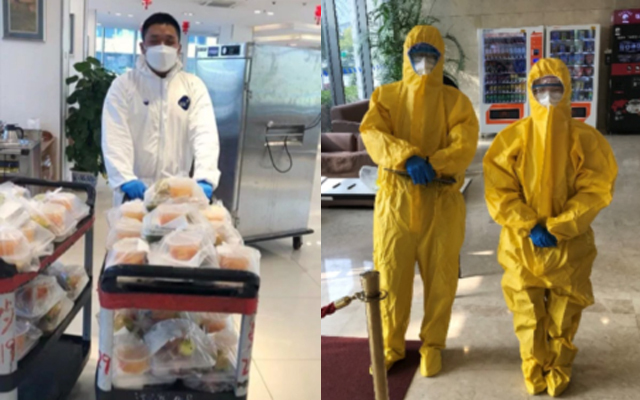Once filled with merry folks on vacation or business people meeting and closing deals, several hotels in Asia are now readying for a new role as the battle against the Covid-19 pandemic continues.
Come next week, the five-star Media Hotel & Towers in Jakarta, Indonesia will begin operations as an apartment for frontline medical staff. All hotel facilities will be at the government’s disposal until the situation is brought under control, according to Fifi Aleyda Yahya, vice president corporate communications of Media Group.

Hotels in metro Manila, the Philippines and Sri Lanka have also reached out to their community with the same offer, to be used as quarantine centres or accommodation for medical staff.
With the number of suspected and confirmed Covid-19 cases growing, hospitals across cities are finding their capacities stretched beyond their limits while healthcare frontliners are exhausted and in need of a resting place close to their stations and yet away from their family.
The decision to volunteer one’s hotel as a medical facility does not come easy. It requires an alteration of operations, as taking care of holiday-makers and business travellers is different from looking after people with medical conditions.
When Nanjing International Expo Center (NIEC) in China chose to help alleviate the city’s pressure for isolation facilities, staff found themselves tasked with a fresh set of responsibilities along with protective suits as their new uniform.
Regarded as a landmark in the Chinese city of Nanjing, the Centre has 140,000m2 of exhibition space, a convention centre and a 252-key hotel.
Leo Liu, deputy director of sales & marketing with the Centre, told TTG Asia that a system had to be established, where a health docket was created for every guest, temperature screening was conducted twice a day, public spaces were sanitised twice daily, and garbage was carefully sorted out individually and transported for safe disposal.
NIEC had to work closely with the city’s health authority to establish critical procedures needed to safely isolate hundreds of people. Hotel staff also cooperated with government personnel, the police and healthcare specialists to ensure the safe storage of medical supplies such as masks, thermometers, alcohol, and disinfectants.
Amid all that, the Centre’s staff upheld their hospitality commitment.
Liu said: “We provided three daily meals, and we did our best to address the needs of our guests. We kept communications going with our guests who are in isolation in order to keep their spirits up, while observing them to ensure they get the necessary protection they need. For the latter, we had to play the role of educator, reminding them constantly of good hygiene practices and to ensure none of them gathered in the hotel for social purposes.”
Liu opined that all the hard work was worth it. “We need to assume social responsibility during these unusual times. We will continue to provide assistance to the community should our help be needed. The pandemic is spreading globally and becoming more serious, and there may be more cases from returnees to China. We welcome them and promise to provide a home-away-from-home environment,” he said.
Presently, the government is allocating returnees, including Chinese students from overseas schools, to various hotels in Nanjing that are serving as isolation centres. Suspected cases picked up at the airport are directed straight to hospitals and designated medical facilities.




















